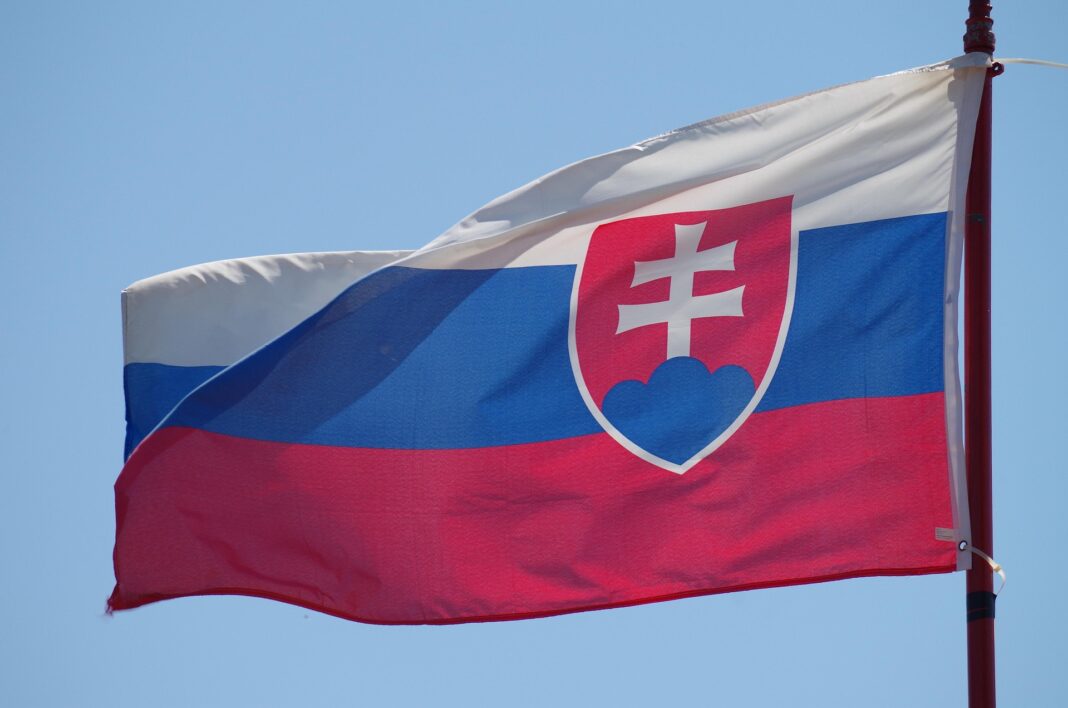Author: Vojtěch Berger, HlidaciPes.org
In mid-November, a film showing the alleged truth about the situation in Donbas was introduced to a peculiar audience in Bratislava. Its – in the words of the film’s authors – „international“ premiere was also attended by representatives of the Russian embassy in Slovakia and guests from the Czech populist SPD party. On the screen, they watched the Kremlin’s lies about Ukraine.
Exactly in line with Russian propaganda, the film implies that the destruction of the theatre in Mariupol with hundreds of civilian deaths was not caused by Russian bombing, but that the Ukrainians themselves blew it up.
In reality, the bombing of the theatre in Mariupol in March 2022, despite the building’s visible signage that civilians, including children, were hiding inside, is one of the symbols of Russian war atrocities from the early days of the invasion of Ukraine.
Several independent investigations and dozens of interviews with survivors have documented the course of events of russian attack.
Yet Russian propaganda is trying to describe the whole tragedy in reverse and blame Ukraine. In October, the Russian government issued a „Strategy of State Cultural Policy“, which, among other things, accuses the Ukrainian army of damaging „Russian“ cultural institutions and monuments, including the Mariupol theatre.
Propaganda? Just the opinions of „locals“
This false Russian story is now being helped to spread by the new Slovak film „The Choice of a Nation – Testimony from the Donbas“. In addition to Russian diplomats, its premiere in Bratislava was also attended by some guests from the Czech Republic, such as Vladimíra Bondarenková, a parliamentary assistant and municipality politician of the Czech opposition party SPD.
„The document apparently contained statements of local people and what they thought about it. Whether their perspective is real, I cannot judge,“ she commented on the film experience – with addition that in war „it is difficult to independently verify events“, that the main thing is to „exert all forces to end the war quickly“ and that „it is a humanitarian disaster“.
So who was featured in the film? For example, the aforementioned claim of Ukrainian culpability in the destruction of the theatre is presented on camera without any further evidence by a young student at the University of Mariupol.
Subsequently, this claim is „confirmed“ by one of the film’s authors, Pavol Slota, the chairman of the non-parliamentary Slovak Domov („Home“) Party. In the film he stands in a helmet on the construction site of the reconstructed theatre and shows where the building was supposed to be „blown up from the inside“.
TV journalist on sanctions list
The second author of the film is Michala Gánovská. She describes herself as a journalist and her YouTube work and other social media outputs mostly show her good contacts with the Russian embassy and her closeness to the current Slovak government of Robert Fico – which is also friendly to Russia, verbally at least.
In the past, Gánovská has run in parliamentary and regional elections for the far-right Republika party, a splinter from the better-known „Kotleba“ party.
Another respondent in the film is Andrei Afanasyev, a „journalist“ from Moscow working for the Russian TV channel Spas, which is affiliated with the Orthodox Church.
Spas TV has been on the European Union’s sanctions list since last year for supporting Russian aggression in Ukraine and spreading Kremlin propaganda. This also shows how balanced is the „testimony from the Donbas“ that the film promises to its viewers.
Other passages in the film address the Slovak audience directly and try to give the impression that it is the weapons provided to Ukraine after the Russian invasion by Slovakia that are killing people in the Donbas. However, the film is silent about Russia’s crimes in the war in Ukraine.
Mariupol, for example, which was largely razed to the ground by the brutal Russian siege, is instead portrayed as a city on the threshold of a new era of prosperity – financed, of course, by Russia. This, too, is in line with the Kremlin’s propaganda, which is pumping money into Mariupol to rebuild its destroyed infrastructure.
„Delighted to fly to Moscow“
The film co-author and politician Pavol Slota refers to the Ukrainian regime as „intertwined with neo-Nazi ideology“.
Unsurprisingly, the Russian propaganda channel and website RT also paid attention to the new movie. The latter quoted Slota as saying that the journey to Donetsk, Avdiivka and Mariupol was difficult because of the sanctions, but that he has „friends in Russia who helped him“.
Although the Czech SPD party has long rejected the „pro-Russian“ label despite its positions on Russia and Ukraine, it were its party representatives together with delegates of other similar Czech Party „Trikolóra“, whom Slota later thanked by name for attending the premiere of the apparently pro-Kremlin film.
„Testimony from the Donbas“ therefore fits in with the clearly pro-Russian activities of the current Slovak cabinet and its entourage. Prime Minister Robert Fico confirmed that by his announcement that he was „delighted to accept“ Vladimir Putin’s invitation to attend the celebrations of the end of World War II in Moscow in 2025.

